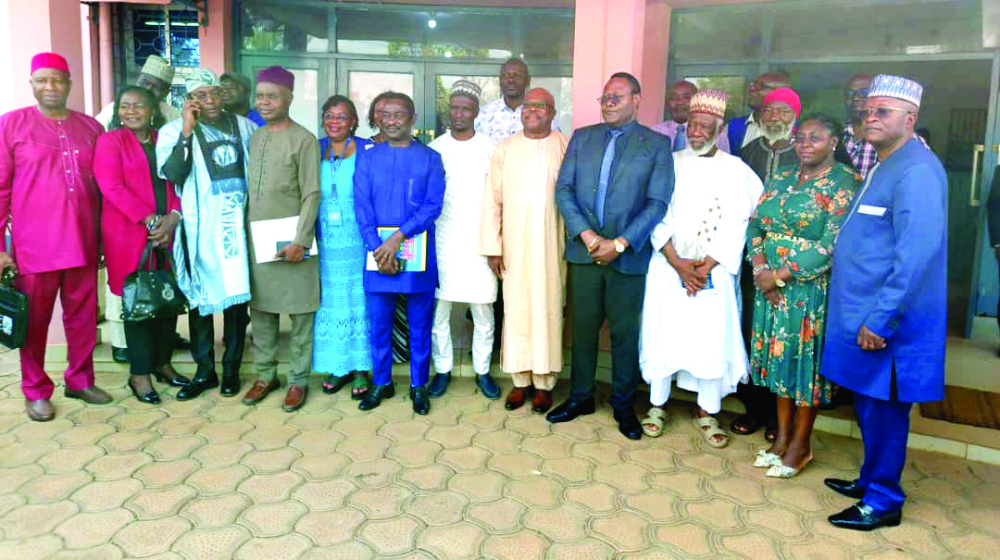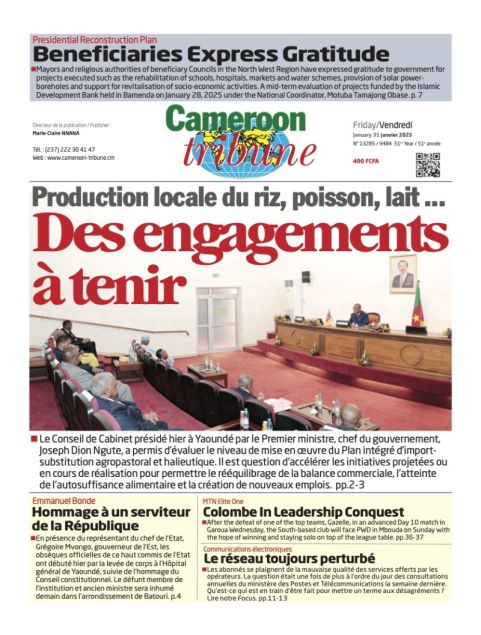Female Employment: Obstacles Persist, But….
- Par Richard Kometa
- 20 janv. 2025 11:12
- 0 Likes
Realities in the job market are at times different depending on gender.
Male/female job perception factors have generally differed according to societal needs and structures. Yet, getting a balance in terms of gender preoccupations and ensuring that output matches consumer-demands and meets economic growth challenges can even be complicated to conclude. Recent findings by the National Institute of Statistics (NIS) made public on 7 January 2025 exposed several details that warrant a critical view by analysts in order to pursue policies that can push up the development agenda of the country.
From the look of things, the balance is in favour of the male gender as far as employment is concerned in terms of access to descent jobs. But, such hiccups could in the long run serve as an advantage if the female population that currently benefits from the little that exists, effectively moves their achievements to higher heights.
Some of the data from the NIS indicates that while 47.3% of women participate in the job market alongside 61.4% of men. Creating a clear sense of male dominance. In sectors that require less qualification, there are 68.3% females and only 24.1% male. Meaning women need to work harder to obtain qualified jobs that men do. Time put in for domestic chores stands at 24.5 hours weekly for females as against 16.4 for males. A pointer to the fact that women spend more time in house work than men do in the country. Yet, at the work place the same results are expected from both parties. Looking at weekly hours at work, women spend 38.6 hours while men go for 45.9 hours at least each week in the office. Beyond the details, there is a bigger picture in the study which reveals that 68% female population in the country that work, do so as entrepreneurs in the informal sector as against only 40% of men. This is in sectors like agriculture, food processing, retailing and domains that require basic certificates and are not only less skilful but require much support to emerge.
Given that the informal sector harbours 86.6% employment opportunities in the country, the conclusions of the NIS studies can start presenting some visible advantages, especially in the long run. That would evidently mean efforts being put in place to upgrade the informal sector should be able to bear fruits faster. If that happens, women could be in a position to play a pivotal role in pushing the economy upwards. Moving from the informal sector to the formal, would also mean that they hold key positions as entrepreneurs and major investors capable of determining the direction that the job market and the economy in general should go.
Granted that preoccupations like child bearing, domestic work, low income and others have over the years been obstacles to female emancipation, there have equally been objective arguments for shared responsibilities in homes as a way out of such dilemma. Thus, the issues at stake may not just be about reversing what appears as a negative trend against women, but ensuring that the advantages being offered as steps in gender balance should be able to help the communities grow further and stronger. This is where the measures examined by government to include gender factors even in the state budget could make much sense. For instance, in the current 2025 State budget, resources envisaged to reduce gender gap, that is male/female and girl/male child inequalities stand at FCFA 92.46 billion, subdivided into ten pilot ministries. More interesting is the fact that the figure shows a significant increase of about FCFA 20.04 billion from the 2024 budget.
By laying emphasis on basic and secondary education, as is the case presently, the chances are that women who take advantage of the openings will easily grow their enterprises and be able to invest better for the wellbeing of their businesses. That could in effect have a multiplier impact on the economy. Of late, there have been signs of effervescence in the Small and Medium-size ...
Cet article complet est réservé aux abonnés
Déjà abonné ? Identifiez-vous >
Accédez en illimité à Cameroon Tribune Digital à partir de 26250 FCFA
Je M'abonne1 minute suffit pour vous abonner à Cameroon Tribune Digital !
- Votre numéro spécial cameroon-tribune en version numérique
- Des encarts
- Des appels d'offres exclusives
- D'avant-première (accès 24h avant la publication)
- Des éditions consultables sur tous supports (smartphone, tablettes, PC)















Commentaires